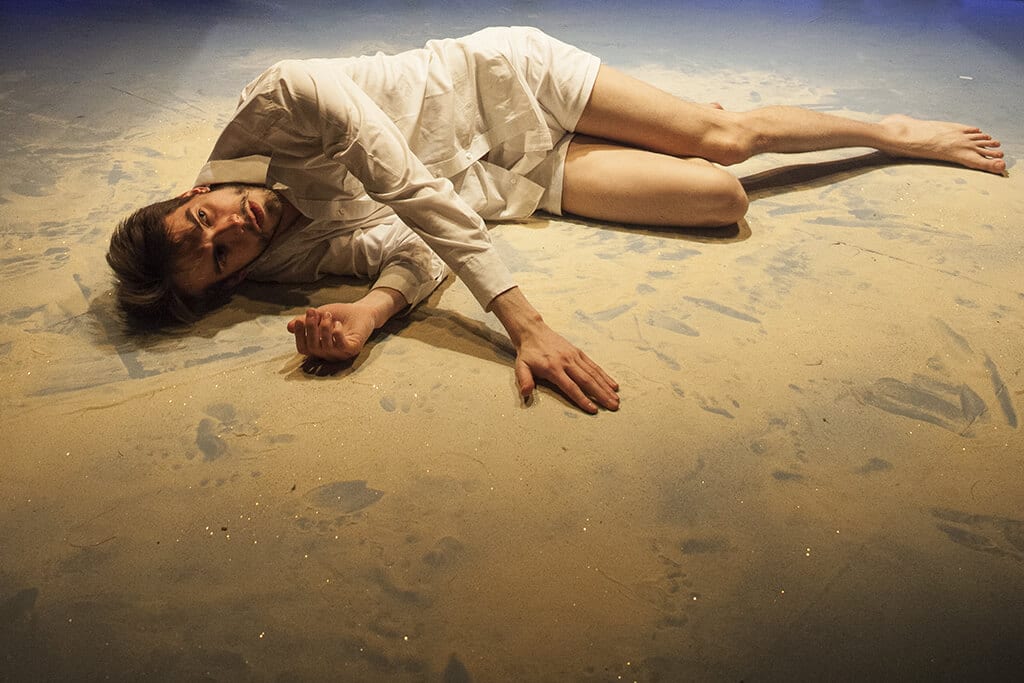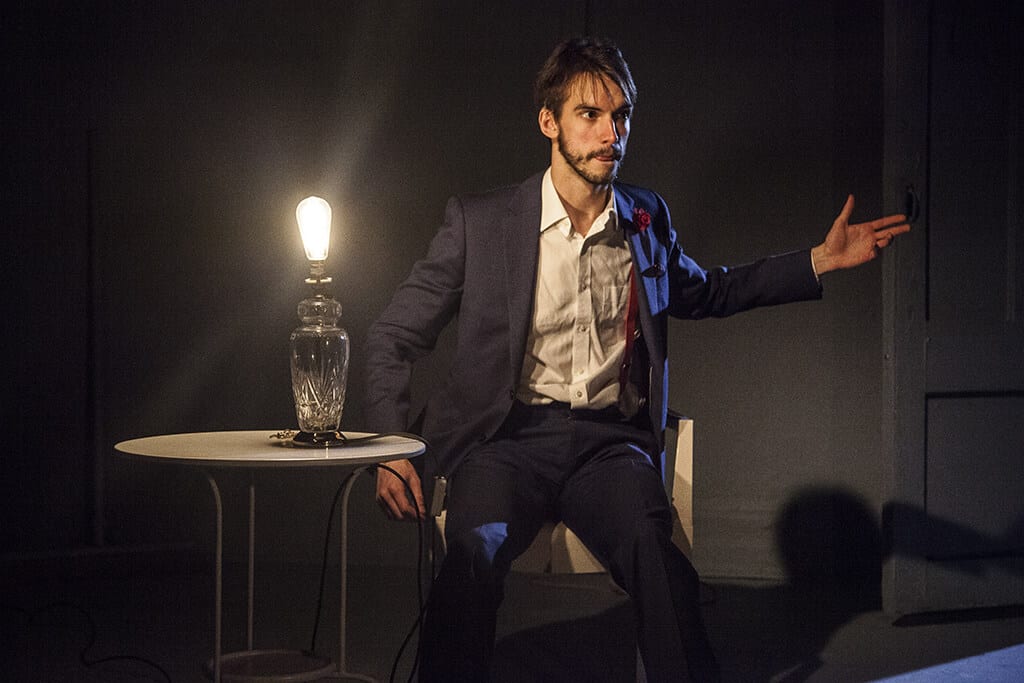Beckett’s plays are always challenging – for actors and audience alike. Sometimes they are rewarding too and two of these three short plays certainly are. The Old Red Lion is a very well chosen venue for the work and the intimacy of the performance space gives the young actors every chance to engage with the audience. It was this ability to draw the audience members into the action – particularly by facial expression – that led to an increasingly warm response as the evening developed.
The first play, Act without Words I, is the least satisfying of the three works. It is indeed a wordless drama and it depends on the mime skills of the actors. As the play begins a man is flung into the spotlight and finds himself alone in an imaginary desert, trapped by forces that he cannot see. He tries to puzzle out what he needs and what arbitrary powers are threatening him. The other actors stand with their backs to the audience and are in control of ropes that, usually to the sound of a whistle, raise and lower objects – scissors, water bottle, cubes – from the ceiling above the actor in jeopardy. Every time the actor seems to be making progress the object is whisked away. The impression is of a malevolent fate from which there is no escape.
The second play, Rough for Theatre II, shows us two men sitting at tables while a third is poised at a window from which he appears to be about to jump. The two discuss details about the life of the man at the window and read out evidence from witnesses about him. The dialogue shimmers with half meanings and hints that shift between the humorous and the sinister.
The third play, Catastrophe, at first seems more explicable than the other two. A director is giving instructions to his nervous assistant about how an actor should be positioned – the actor, clad in a dressing gown, is standing on a plinth in the centre of the stage with a hat tipped over his face. The tyrannical director, the subservient assistant, and the exploited actor seem to offer a political allegory and indeed the play is dedicated to the playwright and dissident Vaclav Havel who was at the time of the first performance in a Czech prison.
The young actors of Whispering Beast put heart and soul into these three plays. They show the fearlessness of youth, sometimes perhaps sacrificing subtlety for an understandable desire to deliver maximum effect. They certainly won over the press night audience and deservedly so. Perhaps this is a night for those who already know and like Beckett – if you do, there is a lot here to intrigue you.



